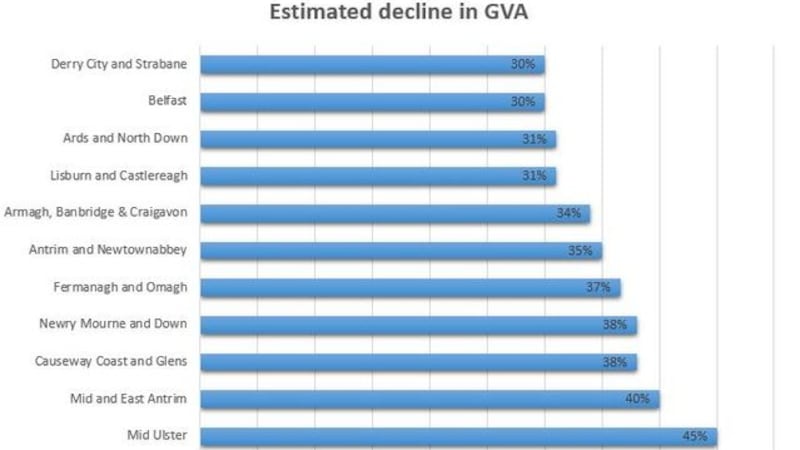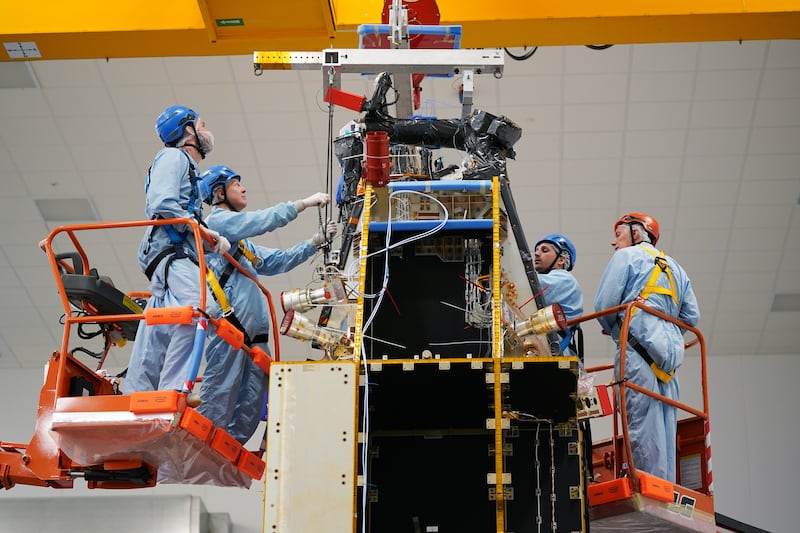A study by a UK think tank has found that Mid Ulster will endure the greatest economic impact of Covid-19 in the north.
New research from the Centre for Progressive Policy (CPP) has concluded that manufacturing hubs will bear the short-term brunt of coronavirus.
Analysing all UK local authorities, the CPP study put the Mid Ulster District Council in the top ten worst hit areas. It estimates that GVA (gross value added) – the measure of the value and goods and services produced in an area – could temporarily fall by 45 per cent in Mid Ulster.
The think tank has based its methodology on analysis published by the Office for Budget Responsibility (OBR) this week, which predicts that UK GDP will fall by 35 per cent in the second quarter of this year.
The CPP said its analysis assumes manufacturing will be hit by 55 per cent across all local authorities. Mid Ulster is considered one of the north’s key manufacturing hubs.
Last week, Manufacturing NI warned of an economic emergency in rural areas of Northern Ireland if the coronavirus lockdown continues for too long.
The CPP concludes that the impact across Northern Ireland on average will be 35 per cent, but there are significant variances. Along with Mid Ulster, the worst hit areas would be Mid and East Antrim (40 per cent), Causeway Coast and Glens (38 per cent), Newry Mourne and Down (38 per cent) and Fermanagh and Omagh (37 per cent).
At 30 per cent, Belfast and Derry City and Strabane would be the least impacted.
“There is a clear regional dimension to the results”, the CPP concludes.
“The analysis shows the importance of viewing the economic impact of the coronavirus through a place-based lens.
“CPP takes a place-based perspective in all our work, recognising that the ‘national economy’ and measurement of GDP is an abstract concept without such local drill down.
“The challenge the Chancellor then faces is one of shoring up, before moving to a revitalised levelling up agenda that recognises the new place-based challenges facing the economy.”
The CPP said it will now turn its attention to the longer-term economic impact of coronavirus.








